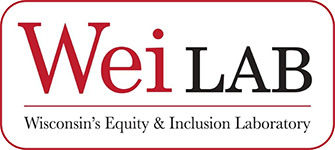The Association for the Study of Higher Education (ASHE) held its 35th annual conference November 18-20, 2010 in Indianapolis, Indiana. ASHE convenes annually as a community of scholars dedicated to the study of higher education. Dr. LaVar Charleston and Dr. Jerlando F. L. Jackson presented, “Preparing the Next Generation of African American Computing Science University Faculty: Examining the Benefits of the Future Faculty/Research Scientist Mentoring Program.”
2010 News
The research conference hosted by Washington University in St. Louis was dedicated to better understanding Black Americans and the STEM pipeline to the professoriate. The convening entity for this conference, the Center for Regional Competitiveness in Science and Technology, obtained funding from the National Science Foundation, Arts and Science School, as well as a Diversity and Inclusion Grant from the Chancellor’s Office at Washington University in St. Louis. Dr. Jerlando F. L. Jackson and Dr. LaVar Charleston presented, “A Journey Less Traveled: Exploring the Coping Strategies of African Americans in Computing Science Doctorate Programs.” The conference was held November 4-5, 2010 in St. Louis, Missouri.
Dr. Jerlando F. L. Jackson was slated as a plenary speaker at the symposium, Keeping Our Faculties V—Faculty Diversity in Higher Education: An Agenda for Research and Change, held November 1-2, 2010 at the Radisson University Hotel in Minneapolis, Minnesota. He presentation, entitled “Leading Change: Administrative Responsibilities and Opportunities for Promoting Diversity,“ occurred on Tuesday, November 2, 2010 from 11:00 a.m.-12:00 p.m.
The Colloquy was sponsored by the National Science Foundation (Research on Gender in Science and Engineering program, Historically Black Colleges and Universities Program, and the Social Psychology program) and was hosted by the CASEE Center of the National Academies. The Colloquy was an invitation only event for 40 selected researchers whom were drawn from the education, social, behavioral, and STEM disciplinary education research communities. More broadly, the colloquy sought to frame approaches to investigating gender-based factors that impact learning and choice in STEM education and the workforce; or study societal, formal and informal educational systems’ interaction with individuals that encourage or discourage interest and persistence in study or careers in certain STEM fields by underrepresented minority males. The Colloquy was held August 8-12, 2010 in Baltimore, Maryland.
